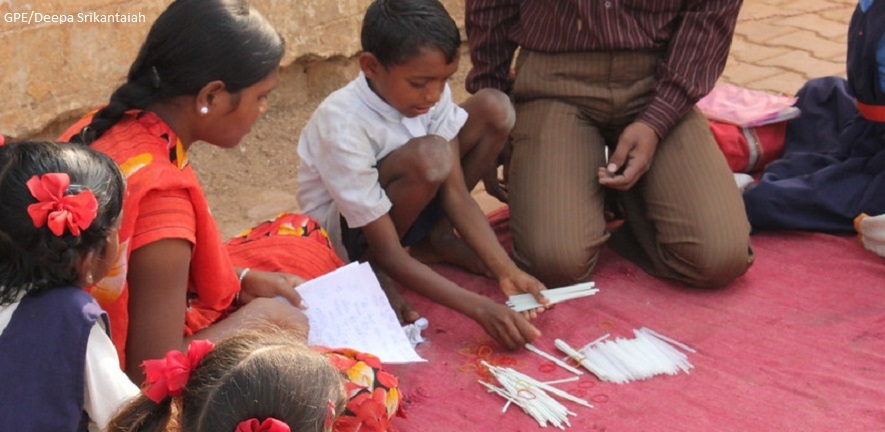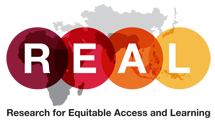
Ensuring equitable learning by 2030
Project summary
Over the past 15 years, considerable progress has been made in children getting access to school worldwide, but this has not been accompanied by a commensurate increase in learning outcomes. Of the estimated 250 million children not learning the basics, around half have spent at least four years in school.
As the timeline for the Millennium Development Goals reaches its end, proposed post-2015 targets are shifting towards a greater focus on raising learning for all. This requires a particular focus to ensure children from disadvantaged backgrounds, including poor girls, those living in rural areas, and children with disabilities, have the opportunity to learn.
This research project aims to inform these discussions. Analysis assesses current patterns in learning, explores the nature of learning inequalities, and aims to identify their root causes. Further, the research aims to identify strategies that can help address these learning inequalities. It also identifies ways to improve data collection in the future for the purposes of research to inform policymaking.
The research analysis primarily draws on large-scale, citizen-led surveys of learning and living conditions in households across South Asia and eastern Africa (namely, ASER India, ASER Pakistan, and Uwezo in East Africa). These data have the benefits of robust survey design, a nationally representative scale, and information on out-of-school children who are at risk of being overlooked by school-based surveys.
More specifically, the research includes:
- an examination of the extent of wealth and gender disparities in learning in rural India and Pakistan, and the role that private schooling and private tuition have played;
- an analysis of learning inequalities in South Asia and eastern Africa, together with a review of the research literature for potential policy mechanisms that might alleviate such disparities, and suggest approaches to improve future data collection and research;
- an analysis of the determinants of trajectories in learning disparities in India over the primary school years.
Research team
Principal Investigator: Professor Pauline Rose
Co-Investigators: Dr Ben Alcott; Dr Ricardo Sabates
Duration
June 2015 – December 2018
Funders
DFID; University of Cambridge; UNESCO Institute for Statistics
Publications
Leaving no one behind
Rose, P. July 2019 A Knowledge and Innovation Exchange (KIX) Discussion Paper, Global Partnership for Education
Measuring equity for national education planning (Chapter 4)
Alcott, B., Rose, P., Sabates, R. and Torres, R. 2018
In the UNESCO Institute of Statistics Handbook on Measuring Equity in Education
Redistribution of government financing to promote equity in education (Chapter 5)
Ilie, S., Rose, P. and Zubairi, A. 2018
In the UNESCO Institute of Statistics Handbook on Measuring Equity in Education
Learning in India’s primary schools: how do disparities widen across the grades?
Alcott, B. and Rose, P. 2017
International Journal of Educational Development 56
Progressive universalism and equality
Alcott, B., Ilie, S., Rose, P. and Sabates, R. 2017
In 2016 Nestle Foundation Report (pg 34 & 35)
Overcoming inequalities within countries to achieve global convergence in learning
Ilie, S., Rose, P. and Sabates, R. 2016
Background Paper, The Learning Generation, Education Commission
Raising domestic resources for equitable education
Rose, P. and Zubairi, A. 2016
Background Paper, The Learning Generation, Education Commission
Does private schooling narrow wealth inequalities in learning outcomes? Evidence from East Africa
Alcott, B. and Rose, P. 2016
Oxford Review of Education 42 (5)
Schools and learning in rural India and Pakistan: who goes where, and how much are they learning?
Alcott, B. and Rose, P. 2015
Prospects
Is a global system of international large-scale assessments necessary for tracking progress of a post-2015 learning target?
Rose, P. 2015
Compare 45 (3): 486-490
Three lessons for educational quality in post-2015 goals: Clarity, measurability and equity
Rose, P. 2015.
International Journal of Educational Development 40: 289-246
How can education systems become equitable by 2030?
Rose, P. and Alcott, B. 2015
DFID think pieces - learning and equity. HEART: Brighton
Blogs
Follow the money: tracking education spending to reinforce accountability
Pauline Rose, Global Partnership for Education, 23 April 2018
Three steps to help policymakers measure equity in national education planning
Ben Alcott, Pauline Rose, Ricardo Sabates and Rodrigo Torres, UNESCO Institute for Statistics Data Blog, 21 June 2018, and Global Partnership for Education, 25 June 2018
Let's get WISE about prioritizing investment in education
Pauline Rose, Global Partnership for Education, 6 November 2015
Universal access to quality education: More and better learning data needed to track #GlobalGoals progress
Ben Alcott and Pauline Rose, International Growth Centre (IGC), 2 October 2015
Achieving the education SDG: Start early and stay the course
Pauline Rose, UNICEF, 1 October 2015
A stepping-stones approach to leaving no one behind in learning
Pauline Rose and Ben Alcott, PAL Network, 25 August 2015
Achieving equitable quality education post-2015: Indicators to measure progress towards learning and equity
Pauline Rose, UKFIET, 27 November 2014
Achieving universal lower secondary education by 2030 – tracking progress of the marginalised
Pauline Rose, Overseas Development Institute blog, 3 July 2014
What the Annual Status of Education Report tells us about learning inequalities in Pakistan
Pauline Rose, Right to Education Pakistan blog, 12 June 2014
Other media
Five steps to achieving the goal of educating every child in the world
The Guardian, 22 September 2015

